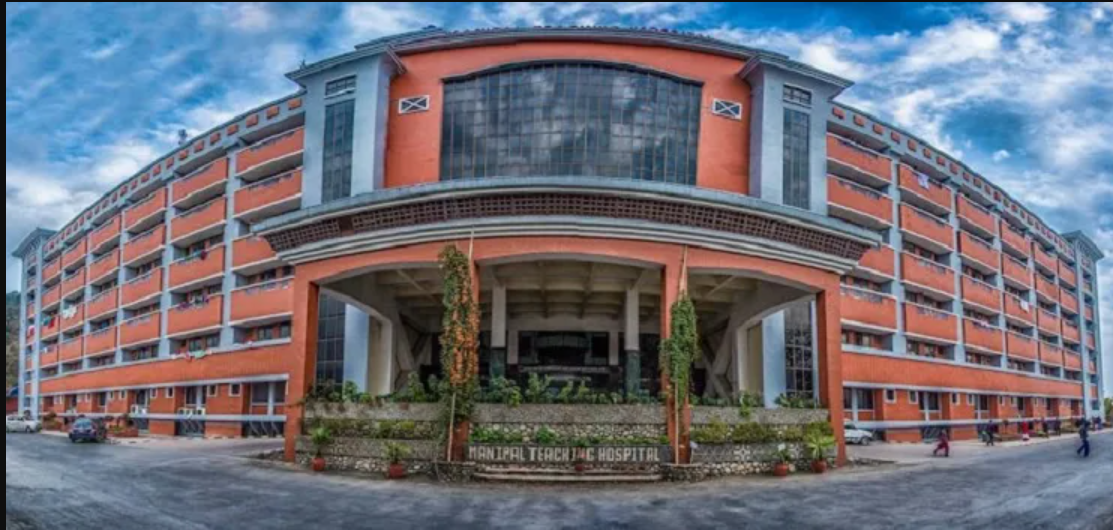Are you considering pursuing a medical degree but worried about the high costs associated with medical education? Look no further than Nepal! With its affordable excellence, MBBS in Nepal offers a feasible option for aspiring doctors. In this blog post, we will delve into the details of MBBS in Nepal fees, top medical universities in the country, financial aid options, admission process, life as an MBBS student in Nepal, career prospects, and success stories of alumni. Let’s explore the world of medical education in Nepal and discover the possibilities it holds for your future.
Why Choose MBBS in Nepal?
Choosing MBBS in Nepal is a smart decision for many reasons. First, Nepal is renowned for offering top-notch medical education that is both high in quality and affordable. This makes it a great option for students who want to become doctors without spending a fortune. The medical universities in Nepal come equipped with modern facilities, have experienced teachers, and offer a curriculum that is both comprehensive and challenging. This ensures students receive an education that prepares them well for the medical field.
Another advantage of studying MBBS in Nepal is the opportunity to learn in a diverse environment. Nepal’s unique healthcare challenges and diverse patient population provide students with practical experience that is hard to find elsewhere. This real-world experience is invaluable in the medical profession.
Furthermore, the cost of living in Nepal is relatively low. This means students can focus more on their studies and less on financial worries. From affordable housing and food to cheaper transportation options, the overall cost of living complements the lower tuition fees, making Nepal an ideal destination for medical students from around the globe.
Top medical universities in Nepal
Nepal is home to several well-known medical schools that stand out for their excellent teaching and research work.
Among these, Birat Medical College, Kathmandu University, and B.P. Koirala Institute of Health Sciences shine the brightest.
Each of these universities offers an MBBS program that aims to give students the skills and knowledge they need to succeed in medicine. Tribhuvan University is celebrated for its rich history and comprehensive curriculum.
Kathmandu University stands out for its innovative teaching methods and international collaborations. Meanwhile, B.P. Koirala Institute of Health Sciences is recognized for its focus on rural health care, preparing students to meet diverse healthcare needs.
These institutions not only provide top-notch education but also foster an environment where students can thrive academically and personally. Through their rigorous programs and supportive community, students are well-prepared for their future careers in medicine.
Understanding MBBS in Nepal Fees
When it comes to studying MBBS in Nepal, one of the biggest advantages is the cost-effective tuition fees. The amount you’ll need to spend for your medical education in Nepal is noticeably less compared to many other countries. Typically, international students can expect to pay between $5,000 and $10,000 per year. This range can vary based on which university you choose and the specific program details.
It’s important to remember, though, that tuition fees aren’t the only expenses you’ll have. Living in Nepal, you’ll also need to budget for your daily life – things like where you’ll stay, what you’ll eat, and how you’ll get around. Luckily, the cost of living in Nepal is quite low, which helps make the overall experience more affordable. For instance, finding a comfortable place to live and enjoying delicious local foods won’t break the bank.
So, while you’re planning your journey to become a doctor in Nepal, take a moment to appreciate the financial aspect. Not only does Nepal offer a quality education that can prepare you well for the medical field, but it also does so in a way that is financially accessible. This combination makes studying MBBS in Nepal an attractive option for many students from around the world.
Comparing Costs: Nepal vs. Other Countries
When looking at the price of studying medicine, Nepal stands out as an affordable choice compared to many other countries. If we compare the fees for an MBBS program in Nepal with those in countries like the United States, United Kingdom, and Australia, the difference is quite remarkable. In the US, for example, the yearly cost for an MBBS degree can easily top $50,000.
Over in the UK and Australia, students might need to shell out $20,000 to $30,000 annually for their medical studies. On the other hand, in Nepal, the yearly expense for pursuing the same degree ranges from a more manageable $5,000 to $10,000. This stark contrast in fees makes Nepal an attractive destination for students aiming to become doctors.
Not only does this allow students to pursue their dreams without the heavy burden of massive debts, but it also offers them the chance to experience a new culture and lifestyle without the financial stress often associated with higher education abroad. This affordability factor, combined with the quality of education provided, makes Nepal a compelling option for aspiring medical students from around the world.
Scholarships and Financial Aid for MBBS Students
To help students manage the cost of their medical education, numerous universities in Nepal offer scholarships and financial aid programs specifically for MBBS students. These financial supports are designed to reduce the burden of tuition fees and living expenses, making it easier for students from various backgrounds to achieve their dream of becoming doctors. Scholarships might cover a part of or the entire tuition cost, and in some cases, they also help with accommodation and other essential living expenses.
In addition to university-offered scholarships, there are also opportunities available through international organizations and government bodies. These programs are often based on merit or need, meaning that students who excel academically or come from less privileged backgrounds have a chance to secure financial aid. It’s important for students to actively seek out these opportunities by researching online, contacting university admissions offices, and reaching out to organizations that offer scholarships for medical students.
Applying for these scholarships may require filling out application forms, writing essays, or providing proof of academic achievements and financial need. It’s a process that demands attention to detail and perseverance, but the effort can significantly reduce the financial challenges of pursuing an MBBS in Nepal. Engaging in this pursuit not only opens the door to affordable medical education but also brings students one step closer to their career goals in the healthcare sector.
Navigating the Admission Process
Getting into an MBBS program in Nepal involves a few clear steps. First off, you must have completed your high school education or its equivalent. This is your ticket to even consider applying. Next, you must prove you’re comfortable using English, often through standardized test scores. Lastly, the real test of your readiness comes with the entrance exam – a competitive hurdle you must clear. Successful applicants then proceed to choose their MBBS program and start their medical journey. Throughout this process, the admissions office and the international student services are your go-to resources. They’re there to guide you, answer your questions, and make sure you understand what’s needed at every turn. It’s a process designed to be transparent and supportive, ensuring only those ready for the challenge of medical school make it through.
Life in Nepal as an MBBS Student
Being an MBBS student in Nepal goes beyond classrooms and textbooks. It’s an enriching journey filled with learning, exploration, and personal growth. Nepal, with its welcoming people and stunning landscapes, offers a unique environment for your medical studies. Imagine studying with the majestic Himalayas in the backdrop or taking a break to explore ancient temples and vibrant markets. The opportunity to taste the local cuisine, which is as diverse as the country itself, adds to the richness of the experience.
In addition to academic rigor, you will find yourself in a melting pot of cultures. This diversity introduces you to different perspectives and healthcare practices, enhancing your understanding and skills in medicine. Nepal’s healthcare challenges, including accessibility in remote areas, provide real-world learning opportunities that are invaluable for a budding medical professional.
Furthermore, engaging with the local community and participating in festivals and traditions allow you to forge deep connections and appreciate the nuances of Nepalese culture. This not only enriches your life but also makes you a more empathetic doctor.
Your time as an MBBS student in Nepal is more than earning a degree; it’s about growing as an individual and professional in an environment that is nurturing, challenging, and incredibly rewarding.
Career Prospects After Graduating from Nepal
Once you’ve completed your MBBS degree in Nepal, a world of opportunities opens up for you. You might choose to dive deeper into a medical specialty that fascinates you. This path could lead you to become an expert in fields like cardiology, neurology, or any other specialization that calls to you. Alternatively, you could start your medical journey as a general practitioner, working in hospitals or clinics. This route allows you to touch the lives of many by providing essential care to a diverse patient population.
Another exciting option is to take the entrepreneurial route and open your own practice. This choice not only showcases your medical skills but also your ability to manage and grow a business in the healthcare sector. The skills and insights gained during your studies in Nepal equip you with a solid foundation to excel in various healthcare environments, whether you stay in Nepal or take your expertise abroad.
The medical degree from Nepal serves as a launching pad, allowing you to explore and succeed in multiple career paths in healthcare. Whether you’re driven by a passion for a particular medical field, the desire to serve in a general practice, or the ambition to run your own clinic, the MBBS degree from Nepal prepares you for a bright future in medicine.
Alumni Success Stories
The stories of former students from Nepal’s medical schools are incredibly inspiring. These alumni have carved out remarkable careers for themselves in the vast world of healthcare. Some have become leading figures in specialized medical fields, contributing groundbreaking research and innovations. Others have chosen paths that led them back to their communities, where they make a significant difference as general practitioners or run their clinics, offering much-needed care and services. There are also those who have taken their skills overseas, showcasing the global appeal and adaptability of the medical education they received in Nepal.
These success stories highlight not just the individual achievements of each alum but also underscore the quality and impact of Nepal’s medical education system. They stand as real-life examples for current students, proving that with hard work, dedication, and the solid foundation provided by an MBBS degree from Nepal, achieving one’s dreams in the medical field is entirely within reach.
Wrapping up
To sum everything up, embarking on an MBBS journey in Nepal is not just about gaining a medical degree; it’s an opportunity to dive into a world where quality education meets affordability. This incredible blend allows you to fulfill your dreams of becoming a doctor without the heavy financial burden often found elsewhere. Nepal’s medical schools are not just places of learning; they are gateways to diverse experiences and cultural immersion. From the classroom to the community, you will be equipped with the knowledge, skills, and empathy needed to make a real difference in people’s lives.
Fortunately, the financial aspect of pursuing an MBBS in Nepal is manageable, thanks to reasonable tuition fees, a low cost of living, and available scholarships and financial aid. This financial accessibility ensures that a wider range of students can pursue their passion for medicine.
Moreover, the future looks bright for graduates. With a degree in hand, doors open to various career paths, from specialized fields to general practice, both locally and internationally. The success stories of alumni serve as a testament to the quality and potential that an MBBS degree from Nepal holds.




